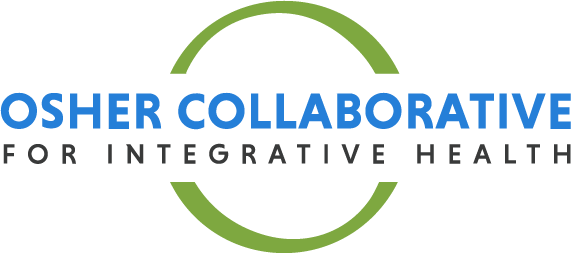Dr. Helen Weng to Present at Mind & Life Summer Research Institute

 Osher Center researcher, Helen Weng, PhD, will be one of the presenters at the 2018 Mind & Life Summer Research Institute, to be held June 2-8 at the Garrison Institute in New York. The theme of this year’s conference is “Engaging Cultural Difference and Human Diversity.”
Osher Center researcher, Helen Weng, PhD, will be one of the presenters at the 2018 Mind & Life Summer Research Institute, to be held June 2-8 at the Garrison Institute in New York. The theme of this year’s conference is “Engaging Cultural Difference and Human Diversity.”
Dr. Weng’s presentation is entitled “Contemplative neuroscience through the lens of diversity and social justice” and will cover the groundbreaking work she is doing with her research project, EMBODY: Evaluating Multivariate MRI Maps of Body Awareness, in collaboration with the East Bay Meditation Center in Oakland, California.
The Mind & Life Institute was created in 1987 by the Dalai Lama, Adam Engle, a lawyer and entrepreneur, and Francisco Varela, a neuroscientist. The mission of the Mind & Life Institute is to alleviate suffering and promote flourishing by integrating science with contemplative practice and wisdom traditions.
Dr. Weng is also a member of the Mind and Life Institute’s Council of Equity, Diversity & Inclusion, which will hold Human Diversity Workshops to help facilitate communication regarding diversity and social justice within the cross-disciplinary fields of contemplative scholarship and practice.
Dr. Weng’s Presentation Abstract:
Academic psychology and neuroscience have typically centered viewpoints of the dominant culture (WEIRD: White, Educated, Industrialized, Rich, Democratic), which has influenced both the process and content of contemplative neuroscience. By incorporating more diverse perspectives through a lens of social justice, I present new lines of work that center viewpoints of meditators who belong to minority groups, and use contemplative practices to heal identity-based suffering and build community. I highlight two main approaches to studying this deep contemplative work:
- community engagement to incorporate diverse perspectives and participants, and
- multivariate neuroscientific methods to measure meditation skills, which rigorously measure diverse mental states within and between individuals.
Community engagement with the East Bay Meditation Center was used to culturally-adapt research procedures for people of color, LGBTQIA+ people, people with disabilities, and the fat community. Importantly, community members were involved at each step, thereby empowering groups that have been historically oppressed in scientific research.
To accommodate experiential and neural diversity, the EMBODY Task uses individualized machine learning applied to functional MRI data to measure diverse mental states during meditation. The EMBODY Task honors each individual’s unique brain structure and function, and provides novel metrics of attention during meditation (such as time attending to the breath) that can be analyzed at the group level. These methodological advances not only improve research in diverse populations but enhance the scientific rigor for the entire field. Throughout, I will highlight the importance of cultivating diverse scholars for enriching the field of contemplative research.

